Do you feel like recovery from training your runs, hikes or long adventures and races is more of a challenge these days? If your “recovery sleep” feels more like staring at the ceiling at 2 a.m., you’re not alone and not imagining it! And, it may be more than just training stress!
During perimenopause, your hormones fluctuate wildly which directly affects your sleep, recovery, and performance. I talk with female runners weekly who struggle with recovery and feel like they’ve slowed down as they’ve aged. I can relate as I’ve experienced this firsthand and like to educate women on what is going on in our bodies:
- Estrogen dips: less serotonin + melatonin makes it harder to fall asleep and stay asleep. Without enough quality sleep, muscle repair, glycogen storage, and mood regulation are all compromised, which means slower recovery and sluggish runs.
- Night sweats + hot flashes: body temperature spikes in the night causing sleep disruptions.. When your temperature rises during sleep, your body struggles to stay in deep sleep cycles, which are essential for growth hormone release and tissue repair.
- Cortisol surges: your body stays “alert,” even when you’re exhausted. High cortisol is catabolic. It breaks down muscle tissue and increases inflammation, which impacts endurance and adaptation.
- Lower progesterone: less of the natural “calming” effect. Progesterone supports GABA, your body’s relaxation neurotransmitter. When it drops, anxiety and restlessness can creep in, making it tough to wind down after a tough workout or race.


How to Support Better Sleep and Recovery:
- Keep it cool: Keep your bedroom at 65–68°F, use moisture-wicking bedding, and skip the post-dinner glass of wine (it disrupts thermoregulation).
- Stress reset: After a long run or tough workout, try legs-up-the-wall or guided breathwork to lower cortisol before bed bringing you into the parasympathetic state (rest and digest).
- Create a consistent sleep routine: Go to bed and wake up at the same time daily, especially around early-morning training sessions.
- Fuel properly: Low energy availability (not eating enough for your mileage + daily activity) amplifies hormonal disruption and wrecks sleep quality. Aim for protein + complex carbs post-run to stabilize blood sugar and recovery hormones.
- Train smarter NOT harder: Balance long, high-intensity sessions with strength and mobility work. Less chronic stress = better hormone balance and deeper sleep.
- Turn down the lights: Avoid screens and scrolling an hour or so before bed and turn down the lights inside to create a calming environment. Blue light suppresses melatonin and delays recovery.
Sleep disruption in perimenopause is physiology. Your body is recalibrating, and when you understand how to train with your hormones, not against them, you can protect your performance, recovery, and energy.
Perimenopause doesn’t mean slowing down! With the right tools, education and support you can learn to support your body’s new rhythm so you can keep running strong for decades to come.
My goal as a Menopause Specialist and Sports Nutritionist is to teach women how to fuel their bodies for optimal performance and recovery and become advocates for themselves through this transitional phase of life!




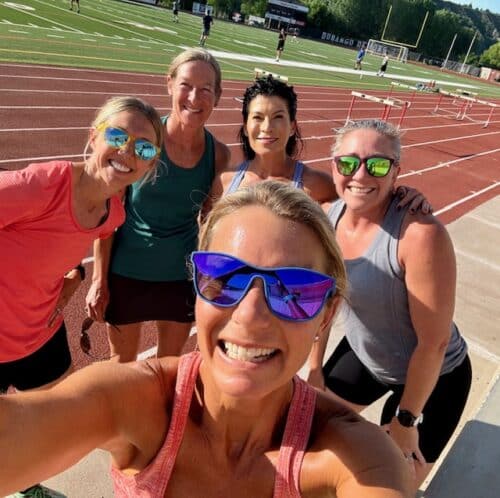



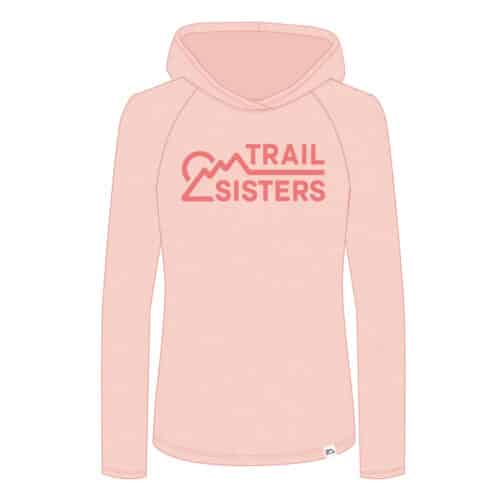
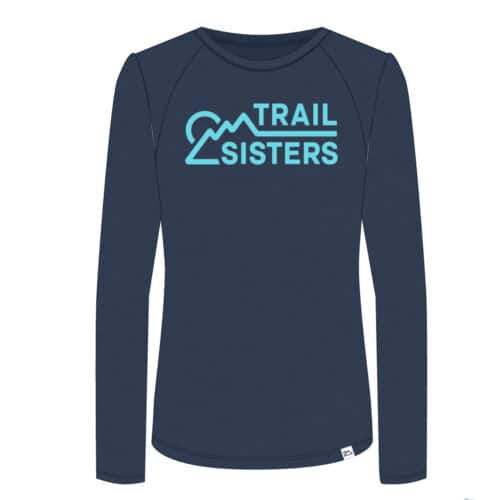
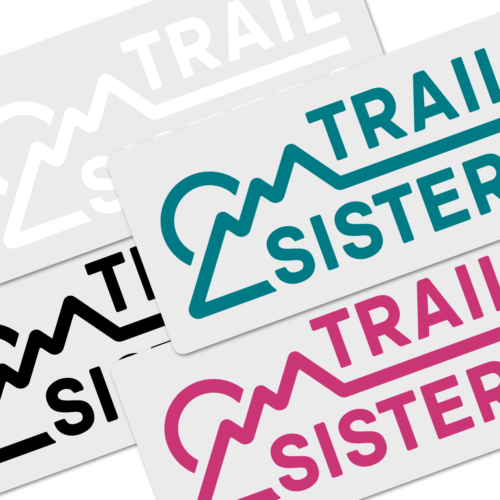
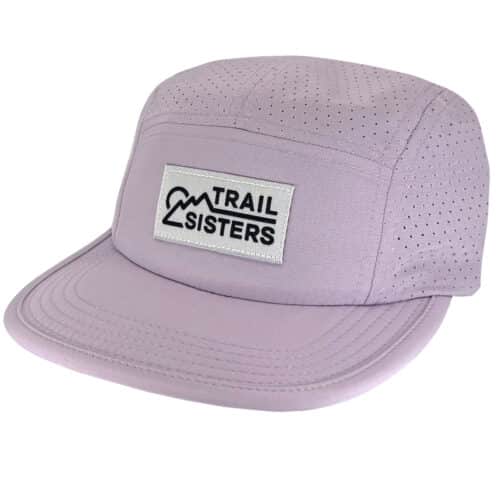
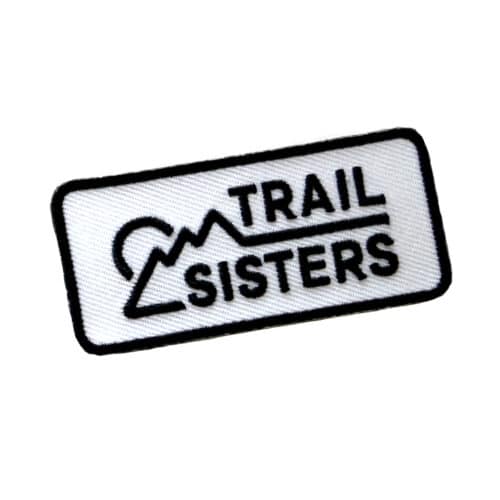



7 Responses
I’m post menopausal. Age 65. Hit full menopause at age 53. I find it interesting that many professional nutritionist still recommend moderate or less alcohol. It’s been scientifically proven that alcohol has zero nutritional benefits and in fact is a known toxin. As many pre and post menopausal women have experienced first hand that they do not metabolize alcohol as easily as they did in younger years. Why not just recommend no alcohol? I gave alcohol up completely at age 51 because it wasn’t helping me in any way. Why is it taboo to speak the facts about the negative impact of alcohol on our mental, hormonal and physical health. 🤔 and I did not have an issue with alcohol over use. It’s unfortunate that alcohol is so highly regarded in our society. Some food for thought.
It also causes liver cancer, among other negative things.
Hi Lisa! I appreciate your response. I agree, as we age, we don’t metabolize alcohol as well as we did when we were younger and it has so many negative impacts on our health and wellbeing such as increased anxiety, disrupted sleep, insulin resistance, decreased muscle protein synthesis, bone density, cognitive effects … the list goes on and on. However, it is ultimately each woman’s decision as to if they want to take on the risk. And, just like all other things in the world of nutrition, everyone has different opinions so you ultimately have to decide what is best for you and your unique body!
This is great start of introducing how women and hormones affects our rest and training. I’m adding a link to Dr. Stacy Sims and her science backed research on perimenopause and post menopause with an emphasis on training for women. She’s incredible!
https://www.drstacysims.com/newsletters/articles/posts/perimenopause-vs-postmenopause-training-nutrition-guide
Jen, thank you for sharing! Yes, Stacy Sims is amazing! I love her research, products and have taken several of her courses!
Really appreciate this, Melissa. It’s such an important topic that doesn’t get talked about enough in the running world. So many women push harder when their bodies are already under stress, not realising how much hormones play into recovery and sleep. Love how you’ve broken it down in a way that actually makes sense, practical, not preachy. Great reminder that smart training and proper fueling can make all the difference.
Rebecca, thank you for your positive feedback! Yes, I am one who can attest to needing to back off instead of pushing harder in order to support my hormones.